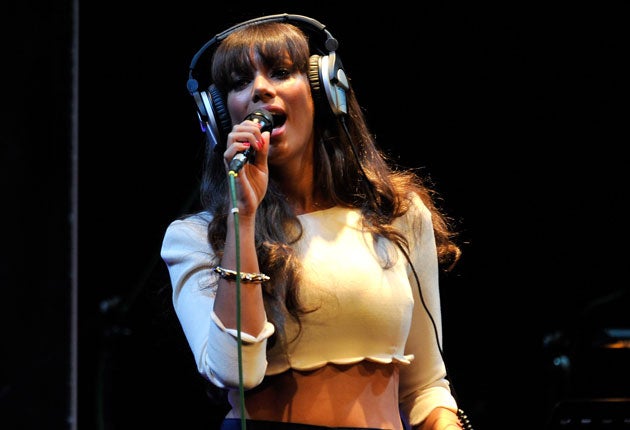Harriet Walker: We haven't all got what it takes to fulfil our dreams

At school, children are always encouraged to think in terms of their talent, be it the ability to exquisitely replicate Leonardo Da Vinci from memory or simply to avoid being caught by the police. Now though, talent has become a devalued sort of nothingness, more adjectival than anomalous, and the cultural equivalent of the E.coli that is thought to be squelching away in so many European cucumbers.
This season of Britain's Got Talent, despite being the least watched in the programme's history, is indicative of an increasingly prevalent attitude about the nebulous notion of talent: namely that everyone has one. This, of course, is counter-intuitive to the very definition of the thing – that is, something which sets you apart from others by way of prodigious expertise or God-given acumen. It seems that one marker of talent today is simply to own a dog that doesn't get stage fright. Or, indeed, to own a grandparent who doesn't mind the limelight that much either. Reality TV shows that aim to find the best in us only end up exposing the very, very worst: shameless grasping and desperate self-abasement.
Our obsession with fashioning purses from pigs' ears and the national penchant for watching it on live TV – with a screeching, shouting, malleus maleficarum audience too, if you please – is symptomatic of something much darker than our need to laugh and point at less fortunate people.
Rather, it says quite a lot of things about a society which sees no other route to happiness, success and moderate wealth than being caught in the searchlights of moguls such as Simon Cowell. There is a preoccupation with being "discovered" as someone who deserves all of these things, which implies quite how redundant efforts to prioritise education in the general mindset have been.
Some of us are lucky enough to get by on our natural attributes alone, others need them locating and then coaxing out. The nature of a TV show that invites people to decide what they are good at – good enough to do it in front of the Queen for the Royal Variety Show, let's not forget – and then castigates them for hubris when they're not up to par, is an absolute inversion of the system of encouragement that all youngsters should expect to benefit from in their formative years. It also incubates a staggering amount of self-delusion that, if not beaten out of someone early doors (in a humane way, of course), can quite easily harm their development. "You want to be a pop star?" we should ask of the caterwauling masses. "Well, why don't you look into being a pop star's manager? Or even someone who works in a record shop?" This is known as managing expectations, and it helps people to find their strengths in a realistic scenario more suited to their situation.
It's unfashionable to point out that not everybody has the capacity to fulfil their wildest dreams, so I won't. But somebody should. Not everyone can be a Leona Lewis, and it's a shame that she, rather than, say, Jamie Oliver or Maxine Peake – who worked their talents hard to built their careers from the bottom up – has become the figurehead for supposed virtuosos. It's not enough to decide to be good at something; it takes graft and, sometimes, the heartbreaking acknowledgement that one is not good enough at a thing to make it in thebig time.
We also need a conversation as to what talent is, per se, and what constitutes a party trick. Talents include playing the violin to a level that doesn't sound like cats dying or writing a sell-out play while you wait for the bus. Popping your eyes out of your sockets, swallowing a billiard ball and pointing at your dog while it dances to Saturday Night Fever fall into the party trick category, I'm afraid. Although, admittedly, the dog's got talent. Uh oh, I feel a TV series coming on.
h.walker@independent.co.uk
Join our commenting forum
Join thought-provoking conversations, follow other Independent readers and see their replies
Comments
Bookmark popover
Removed from bookmarks